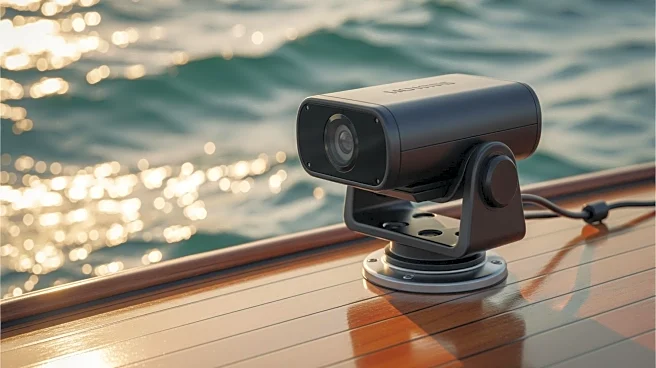What's Happening?
A federal appeals court has ruled that the U.S. government can continue requiring lobster fishing boats to use electronic tracking devices. This decision follows a lawsuit by a group of lobstermen who
claimed the tracking requirements were unconstitutional. The court upheld the ruling, stating that the devices record a limited type of data and do not violate constitutional rights. The tracking devices, which transmit location data via GPS, are intended to improve understanding of lobster populations and inform future regulations. Conservation groups have supported the ruling, emphasizing the need for reliable data to address complex ocean issues. The Maine Lobstermen’s Association has opposed continuous tracking, citing privacy concerns, but acknowledges the importance of data for stock assessment and management decisions.
Why It's Important?
The court's decision is significant for the U.S. lobster industry, particularly in Maine, where the majority of lobstermen are based. The tracking devices provide essential data for managing lobster stocks, which are reportedly in decline due to overfishing. Accurate data collection is crucial for sustainable fishing practices and ensuring the long-term health of the industry. The ruling also addresses privacy concerns, balancing the need for data with the rights of fishermen. This decision may set a precedent for other fisheries facing similar challenges, highlighting the role of technology in resource management and conservation efforts.











